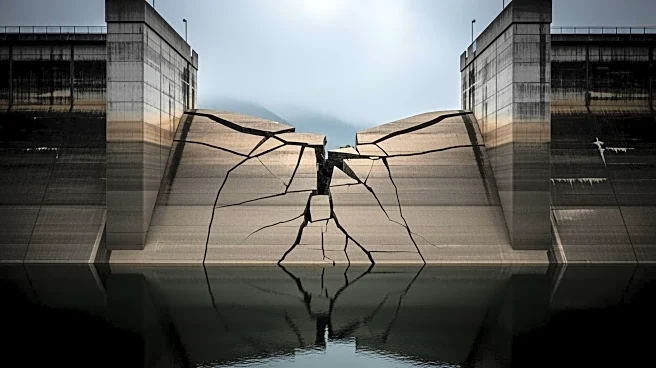What's Happening?
A U.K. High Court has ruled that BHP, an Australian multinational mining company, is liable for the catastrophic collapse of the Fundão tailings dam in Brazil in 2015. The disaster resulted in the deaths
of 19 people and released 40 million cubic meters of toxic mine tailings, affecting towns and waterways over a 675-kilometer stretch. Judge Finola O’Farrell determined that negligence and lack of skill contributed to the dam's failure, which was deemed foreseeable. The ruling is part of the largest environmental class action lawsuit in U.K. history, involving over 610,000 people, 32 Brazilian municipalities, and approximately 1,400 businesses. BHP, which co-owns Samarco, the operator of the dam, with Vale, a Brazilian state-owned mining company, plans to appeal the decision.
Why It's Important?
The ruling against BHP is significant as it sets a precedent for holding multinational corporations accountable for environmental disasters, even when they occur outside their home countries. This decision could influence future litigation involving environmental damage and corporate responsibility. The case highlights the ongoing impact of the disaster, with contaminated water and soil affecting local communities and wildlife. The potential $47 billion compensation sought by the claimants underscores the financial implications for BHP and Vale, which could affect their operations and investor confidence. The ruling also emphasizes the importance of corporate governance and risk management in preventing such disasters.
What's Next?
The next phase of the trial will determine the compensation amount BHP must pay to the claimants. Vale has agreed to cover half of any compensation awarded against BHP. The decision to appeal by BHP indicates a prolonged legal battle, which could delay reparations for affected communities. The outcome of the appeal and compensation decision will be closely watched by environmental groups, investors, and other stakeholders. The case may prompt stricter regulations and oversight in the mining industry to prevent similar incidents.
Beyond the Headlines
The ruling raises ethical questions about corporate accountability and the environmental impact of mining operations. It highlights the need for sustainable practices and the potential long-term consequences of environmental negligence. The disaster's impact on local communities and ecosystems continues to be a concern, with elevated levels of toxic metals found in the region years after the incident. This case may influence global discussions on environmental justice and the responsibilities of corporations in safeguarding natural resources.









